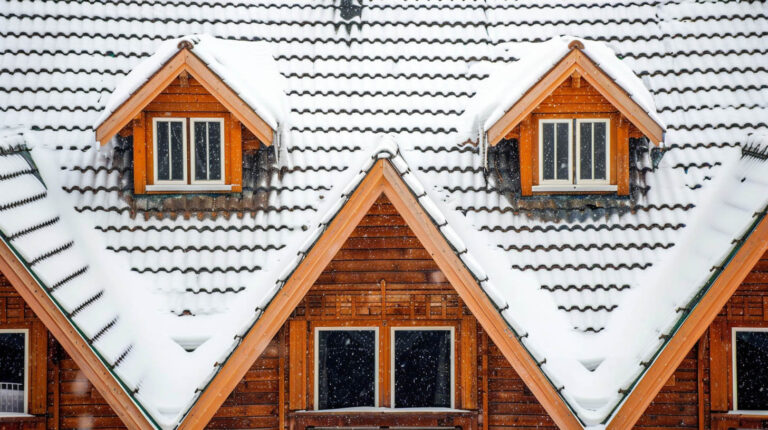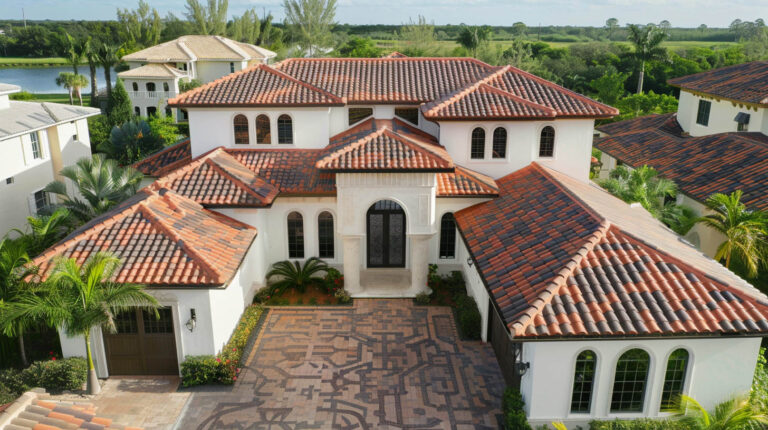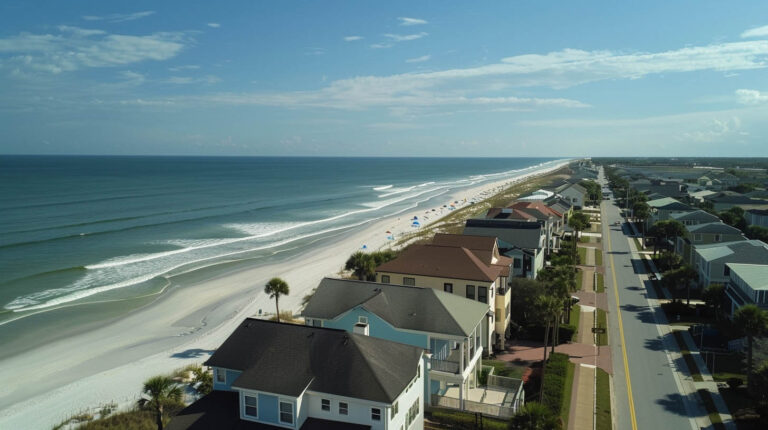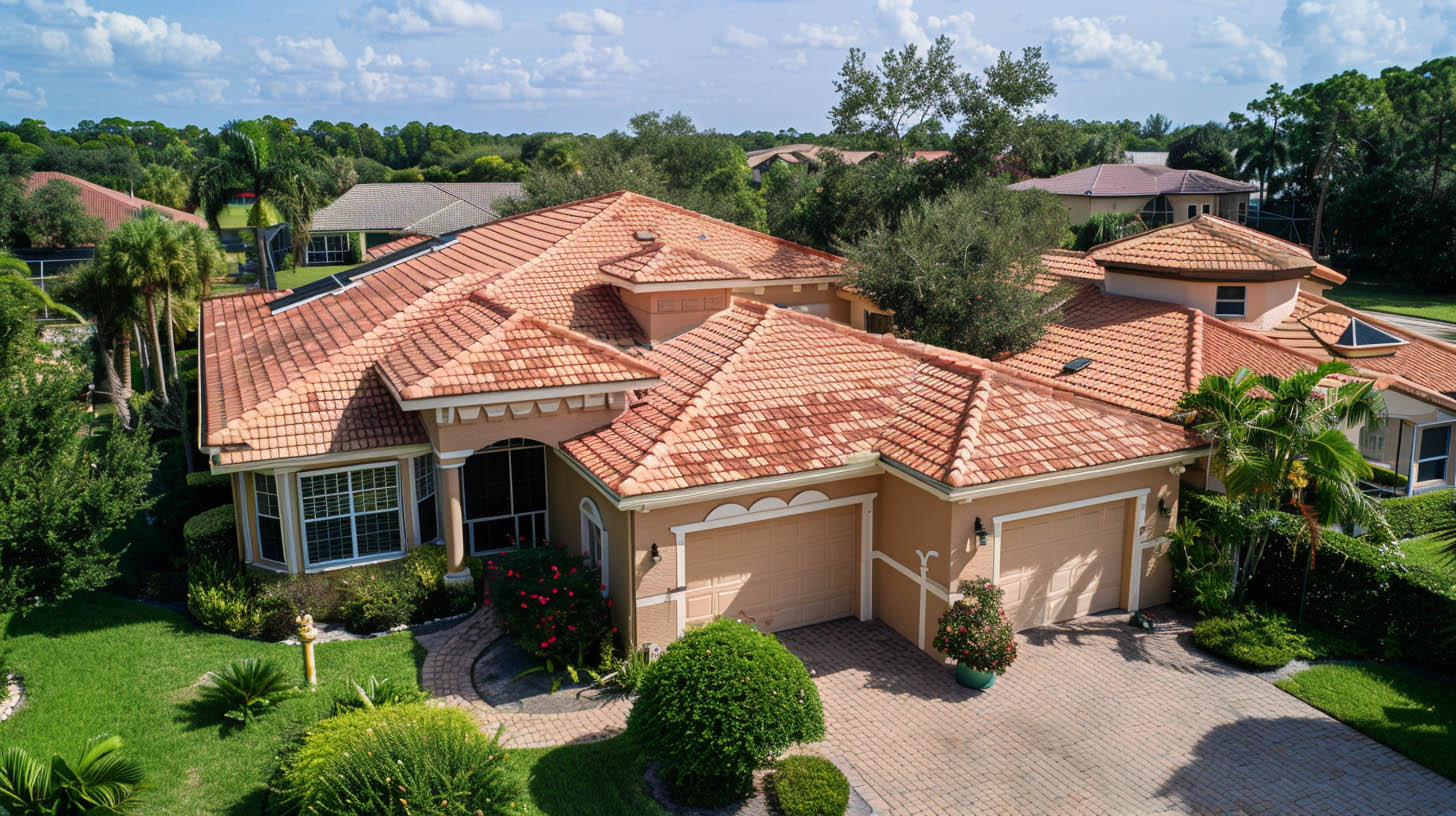
Blog
The Hidden Costs of Delaying a Roof Replacement in Florida’s Humid Climate
Living in Florida means your roof faces unique challenges due to the state’s humid climate and frequent storms. Many homeowners underestimate the speed at which roof damage can develop, ultimately risking their property’s value and structural safety. At Avenue Roofing, our team sees firsthand how quickly an aging or compromised roof can deteriorate under these harsh conditions. Understanding the true cost of delaying a necessary roof replacement is essential—protecting your family, investment, and peace of mind starts with timely action and expert care.
Understanding Florida’s Humid Climate and Its Impact on Roofs
Florida’s climate is defined by year-round humidity levels and intense summer storms. This combination creates an environment where moisture never truly subsides, placing constant stress on roofing systems. As a result, Jacksonville, FL homes face an elevated risk of roof damage, especially if regular roof maintenance is overlooked.
The cost of postponing roof replacements rises sharply in this environment. Persistent humidity accelerates the breakdown of roofing materials, while frequent wet periods drive water intrusion into vulnerable areas. This sets the stage for further damage, significant repair expenses, and serious risks to the structure of your home.
Contact UsCommon Effects of Year-Round Humidity on Roofing Materials
Excessive humidity creates a breeding ground for mold growth and wood rot, particularly in older roofs that lack proper ventilation. As moisture accumulates, it compromises the structural integrity of roofing systems, leading to costly repairs from water infiltration. Asphalt shingles can lose their lifespan significantly, while metal and tile roofs may experience accelerated corrosion or damage. Regular inspections help identify warning signs early, ensuring homeowners can address potential issues before they escalate into major problems, thereby maintaining property value and ensuring energy efficiency.
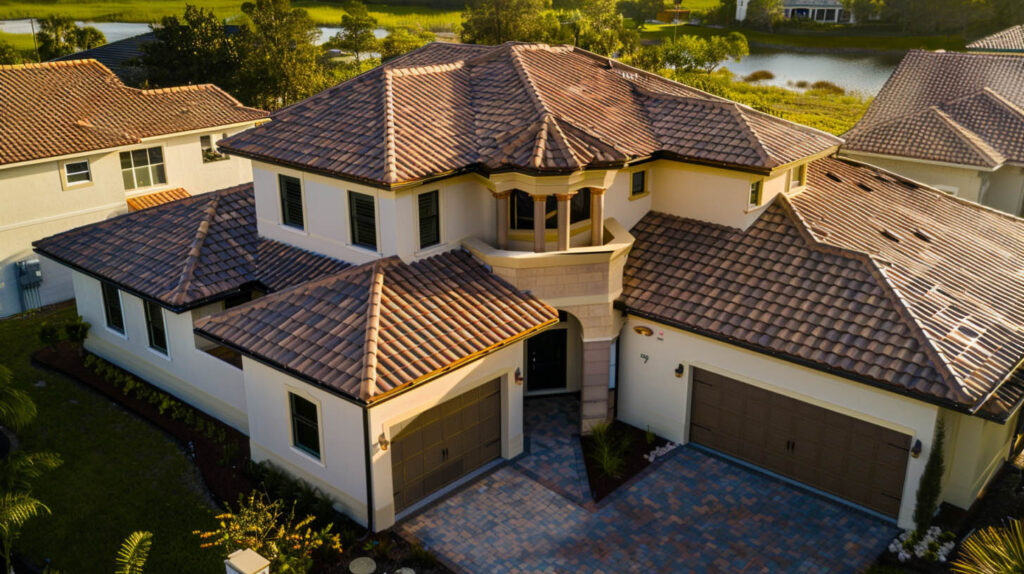
How Frequent Storms Accelerate Roof Deterioration
Frequent storms and the presence of salt air significantly deteriorate roofing materials in Jacksonville, FL. The high humidity levels combined with heavy rainfall from summer storms increase water infiltration, promoting mold growth and wood rot. Additionally, salt from the ocean can corrode metal roofs and reduce the lifespan of asphalt shingles. Regular inspections are essential for identifying warning signs of storm damage early, allowing homeowners to address minor leaks before they escalate into costly repairs that compromise the structural integrity of their homes.
Why Homeowners Delay Roof Replacement in Florida
Many Florida homeowners postpone roof replacement due to budget limitations or uncertainty about their roof’s true condition. The upfront investment for a new roof can seem daunting, particularly if the warning signs aren’t obvious. Instead of proactive roof inspections, some wait for visible leaks or storm damage before taking action.
This wait-and-see approach often results in expensive repairs and insurance complications down the line. By understanding the risks of delaying, you’ll be better equipped to protect your property and finances from further damage.
Misconceptions About Roof Lifespan in Humid Conditions
Many Florida homeowners underestimate the impact of high humidity and frequent storms on the lifespan of their roofs. A common misconception is that traditional materials like asphalt shingles can endure these harsh conditions indefinitely. In reality, prolonged exposure to moisture can accelerate deterioration, leading to structural issues and costly repairs. Regular inspections are crucial to identifying early warning signs, such as missing shingles or water stains, before they escalate into major problems that compromise energy efficiency and property value.
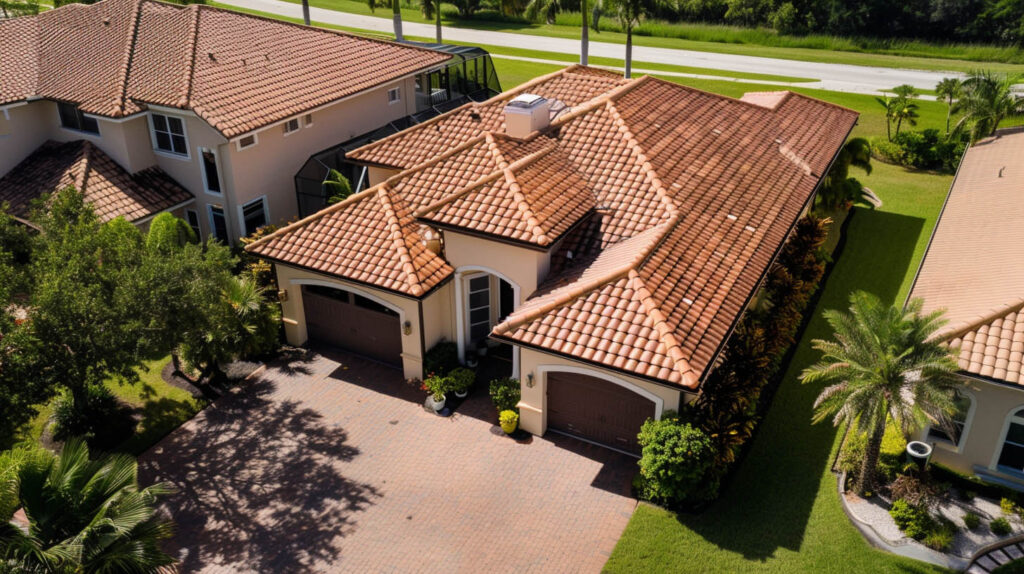
Financial Concerns and Budget Limitations
Addressing financial concerns is crucial for Florida homeowners contemplating a roof replacement. Misconceptions about the lifespan of roofing materials can lead to budget limitations, resulting in deferred projects that compromise structural integrity. Many opt for regular inspections, hoping to extend their roofs’ longevity, but ultimately, this can lead to costly repairs down the line. A proactive approach to maintaining a sound roofing system not only enhances energy efficiency but also safeguards property value, ensuring homeowners make a wise investment in quality materials.
The Financial Risks of Postponing Roof Replacement
When roof replacement is delayed in Florida’s humid climate, homeowners expose themselves to escalating repair costs and complications with insurance companies. Chronic water intrusion can lead to severe structural damage, requiring not just roof repairs but potentially extensive interior restoration.
Ignoring the warning signs may result in expensive repairs, mold growth, and reduced eligibility for insurance claims. Addressing roof issues promptly is the only way to avoid these hidden costs and maintain your home’s value.
Escalating Repair Costs Due to Worsening Damage
Delaying necessary roof replacements in Florida’s humid climate can lead to escalating repair costs. Minor issues, such as missing shingles or small leaks, can quickly devolve into extensive water infiltration and structural damage. This deterioration not only affects the lifespan of your roof but may necessitate expensive repairs, including mold remediation and roof replacement. Timely inspections by a professional roofing contractor, coupled with regular maintenance, can mitigate these problems and preserve both the structural integrity and value of your home.
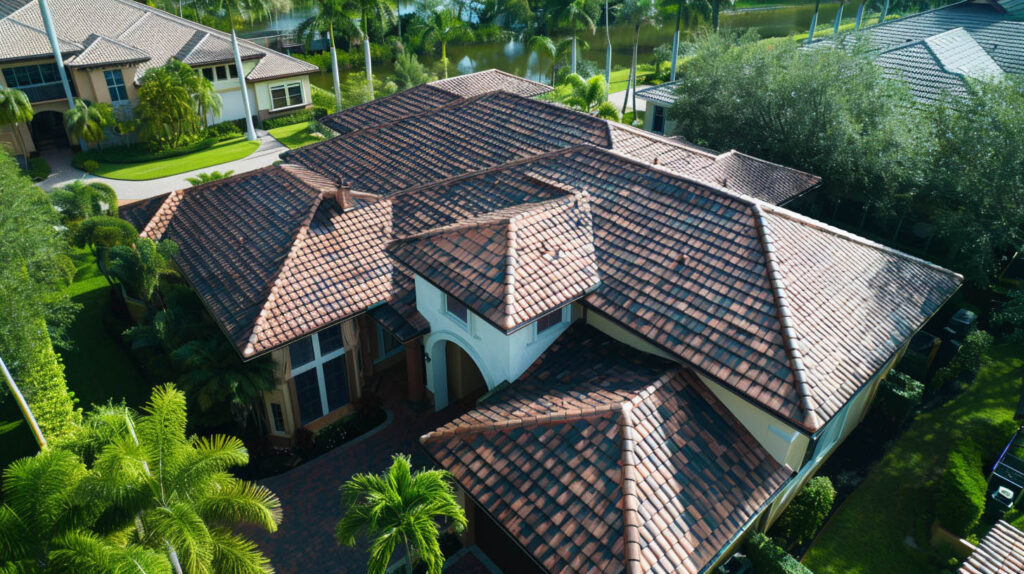
Insurance Complications and Possible Premium Increases
Delaying a roof replacement can lead to significant insurance complications for homeowners. Insurance companies may view an outdated roof as a liability, potentially resulting in increased premiums or even policy denial. Regular inspections are essential for maintaining a roof’s structural integrity; neglecting this can create a history of claims, driving up rates. Additionally, water intrusion from an aging roof can lead to mold remediation issues, further complicating claims and leading to expensive repairs down the line, impacting overall financial stability.
Impact on Property Value and Home Resale in Florida
A neglected roof can seriously diminish your property’s resale value and curb appeal. In Florida’s competitive real estate market, buyers often request home inspections that highlight roofing issues as red flags. Major problems such as water stains, missing shingles, or mold growth can scare away interested parties.
During negotiations, an aging roof reduces buyer confidence, resulting in lower offers or requests for seller-funded repairs. Protecting both your property value and your ability to sell quickly begins with timely roof replacement.
Home Inspection Red Flags
A home inspection can reveal critical red flags that deter potential buyers, such as signs of water intrusion or missing shingles that compromise the structural integrity of a roof. Issues like mold growth or water stains not only signal needed repairs but can also lower the property’s market appeal. Florida homeowners experiencing these problems may see reduced buyer confidence and lower resale value. Addressing these concerns promptly through regular inspections and timely repairs can offer peace of mind and maintain property value.
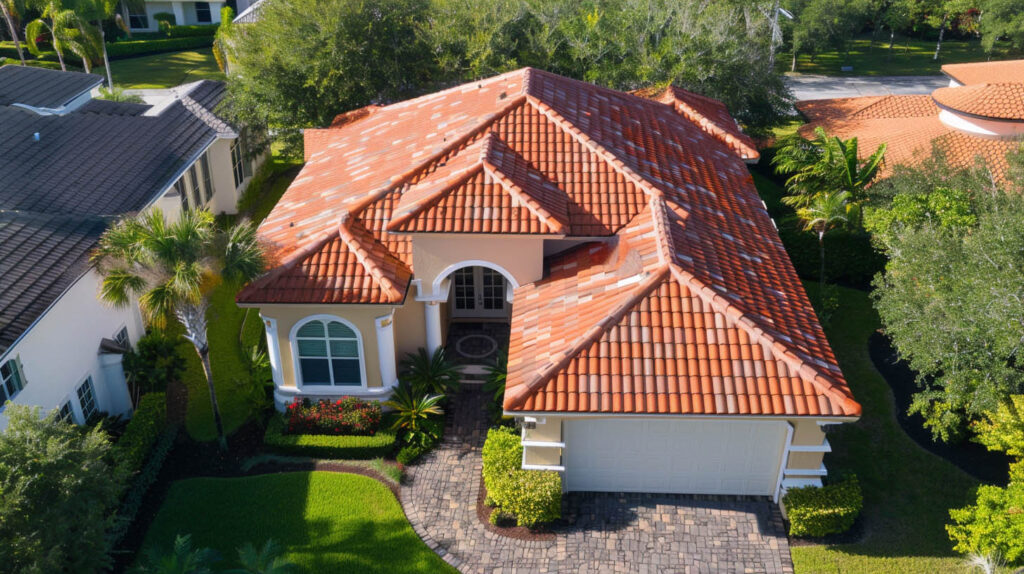
Long-Term Decrease in Home Appraisal Value
Neglecting timely roof replacement can significantly diminish property value. Buyers often prioritize homes with solid structural integrity, as visible roof issues—such as missing shingles or water stains—indicate potential long-term structural damage. In Florida’s climate, where humidity fosters mold growth and water intrusion, a poorly maintained roof raises red flags during professional inspections. Consequently, the overall resale value may plummet, particularly if extensive repairs are required, leaving homeowners grappling with costly consequences in an already competitive real estate market.
How Roofing Materials Respond to Delays in a Humid Climate
The choice of roofing material plays a critical role in how well your roof withstands Florida’s moisture-heavy climate. Asphalt, metal, and tile roofs each respond differently to humidity and frequent storms, especially when replacement is postponed.
Delaying roof replacement increases the risk of mold growth, accelerated deterioration, and reduced lifespan regardless of material. Understanding these differences helps you make informed decisions and minimize hidden costs down the line.
Performance of Asphalt, Metal, and Tile Roofs When Replacements Are Missed
The longevity of roofing materials severely diminishes when critical replacements are postponed. Asphalt shingles, vulnerable to high humidity, may curl or crack, leading to water infiltration and costly repairs. In contrast, tile roofs provide robust durability but can still suffer from mold growth and structural issues if not maintained. Metal roofs, while resistant to weather extremes, require a thorough inspection to prevent rust and leaks. Ignoring these factors ultimately compromises structural integrity and reduces the energy efficiency of your home.
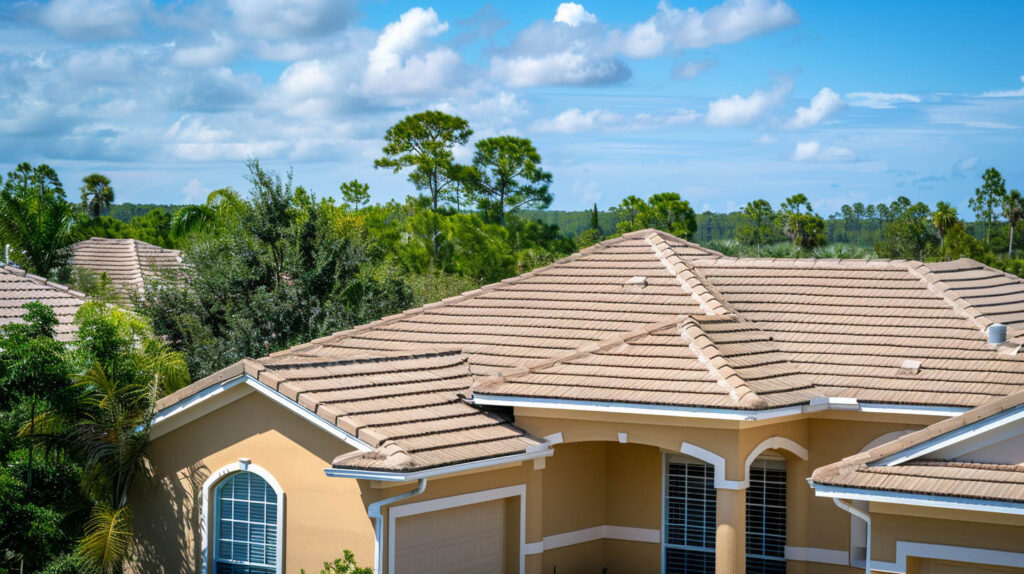
Choosing the Right Materials to Minimize Future Hidden Costs
Choosing quality materials is essential for minimizing long-term costs and repairs. Premium asphalt shingles from CertainTeed and GAF offer enhanced water resistance and durability in Florida’s climate. Properly coated metal roofing provides excellent protection against storms and salt air but requires expert installation and maintenance to prevent rust.
Tile roofing is known for its longevity, withstanding high winds and resisting rot. Collaborating with a roofing contractor experienced in Florida homes ensures proper installation and upkeep.
A complete replacement with the best materials suited for your location and budget guarantees peace of mind, simplifies insurance processes, and boosts energy efficiency. Avenue Roofing’s expertise ensures your new roof provides maximum protection and value.
Call Us 904-712-3494Get Quotes Today
Delaying a roof replacement in Florida’s humid climate can lead to hidden costs beyond initial repairs. Humidity and storms accelerate deterioration, resulting in rising repair expenses and potential insurance issues. Homeowners may also struggle with property value and resale opportunities as buyers shy away from homes needing roof replacements. By tackling these problems early and selecting the right materials, you protect your investment and extend your roof’s lifespan. Don’t let procrastination increase your costs—get quotes from Avenue Roofing today to keep your Jacksonville, FL home safe.
Frequently Asked Questions
What is the 25% rule for roof replacement in Florida?
The 25% rule states that if more than 25% of your roof is damaged in a single roofing project, Florida code requires a full roof replacement rather than just repairs. Insurance companies use this standard to determine coverage for roof repairs on Florida homes.
What is the 15 year roof rule in Florida?
Florida’s 15 year roof rule means that when a roof is 15 years or older, insurance companies often require a professional inspection to verify its condition before approving or renewing coverage. This helps protect Florida homeowners by ensuring roofing systems are still reliable and safe.
Read our blog: How Cool Roofs and Reflective Coatings Can Slash Your Jacksonville Energy Bills
